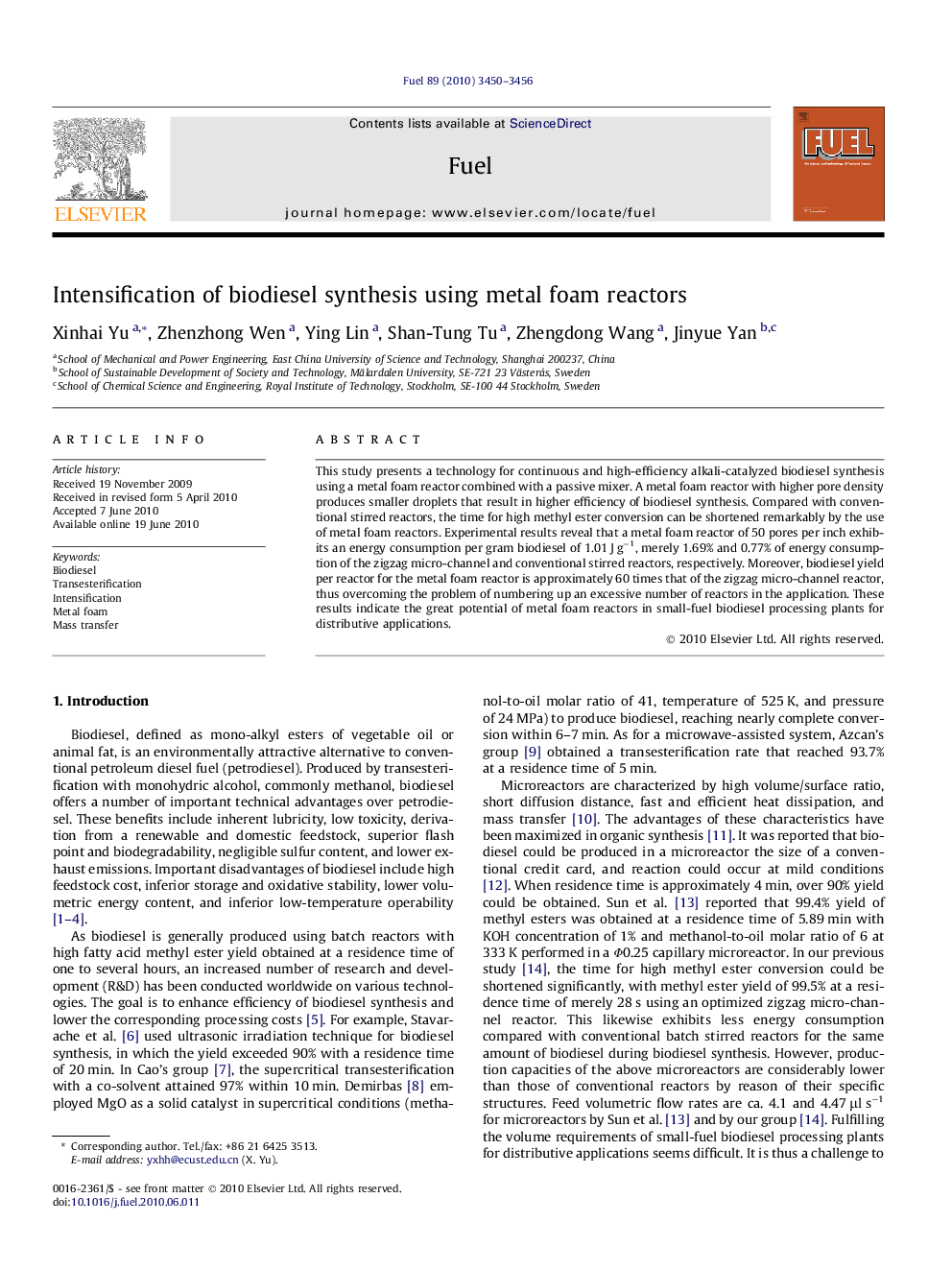| Article ID | Journal | Published Year | Pages | File Type |
|---|---|---|---|---|
| 206862 | Fuel | 2010 | 7 Pages |
This study presents a technology for continuous and high-efficiency alkali-catalyzed biodiesel synthesis using a metal foam reactor combined with a passive mixer. A metal foam reactor with higher pore density produces smaller droplets that result in higher efficiency of biodiesel synthesis. Compared with conventional stirred reactors, the time for high methyl ester conversion can be shortened remarkably by the use of metal foam reactors. Experimental results reveal that a metal foam reactor of 50 pores per inch exhibits an energy consumption per gram biodiesel of 1.01 J g−1, merely 1.69% and 0.77% of energy consumption of the zigzag micro-channel and conventional stirred reactors, respectively. Moreover, biodiesel yield per reactor for the metal foam reactor is approximately 60 times that of the zigzag micro-channel reactor, thus overcoming the problem of numbering up an excessive number of reactors in the application. These results indicate the great potential of metal foam reactors in small-fuel biodiesel processing plants for distributive applications.
